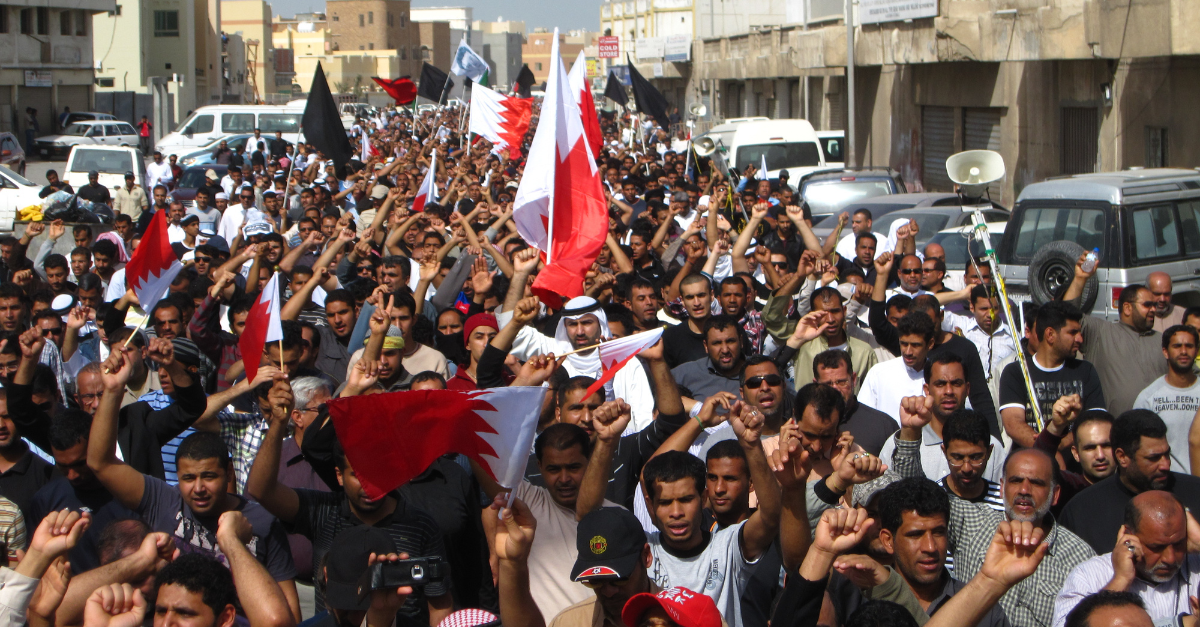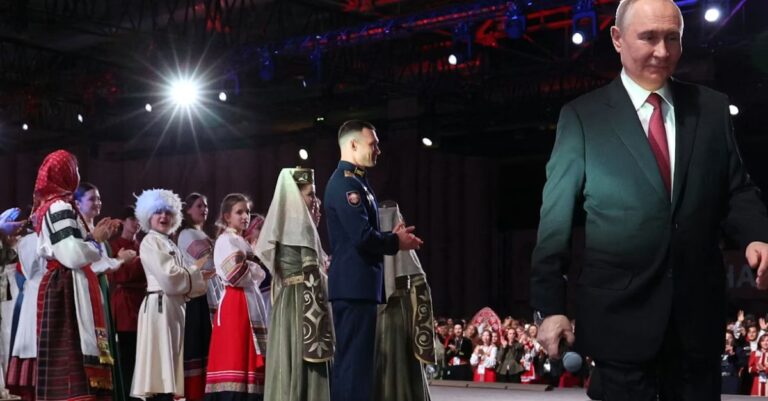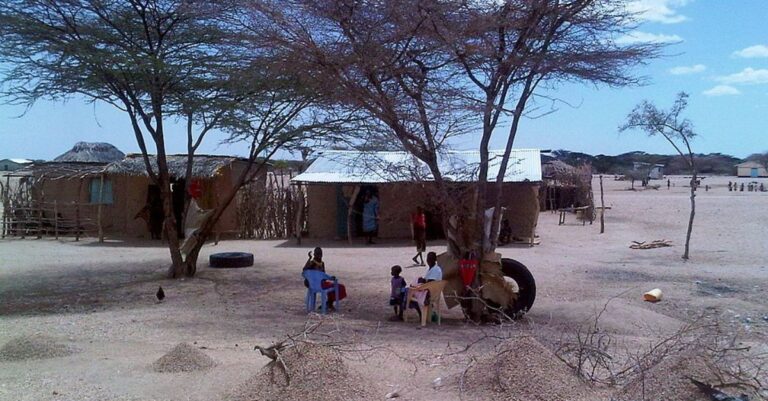The intellectual is an individual endowed with a faculty for representing, embodying, and articulating a message, a view, an attitude, philosophy or opinion to, as well as for, a public. And this role has an edge to it and cannot be played without a sense of being someone whose place it is publicly to raise embarrassing questions, to confront orthodoxy and dogma (rather than to produce them), to be someone who cannot easily be co-opted by governments or corporations, and whose raison d’etre is to represent all those people and issues that are routinely forgotten or swept under the rug.
Edward W. Said, Representations of the Intellectual (1996)
Arab Spring
On December 17, 2010, a young Tunisian who sold vegetables from a barrow set himself afire to protest against police harassment. Mohamed Bouazizi died on January 4, 2011, but not before his gesture went viral, sparking protests against the cost of living and the country’s authoritarian President Zine El Abidine Ben Ali.
Ben Ali’s 23-year rule ended ten days later when he fled to Saudi Arabia, becoming the first leader of an Arab nation to be pushed out by widespread protests. On January 25, 2011, thousands of Egyptians marched in Cairo, Alexandria and other cities, demanding the departure of President Hosni Mubarak, who had been in power for 30 years. On February 11, as more than a million took to the streets, Mubarak resigned and handed control to the military. The Muslim Brotherhood-linked government of Mohammed Morsi was elected in 2012 but was overthrown the following year by the military led by the general, now president, Abdel Fattah el-Sisi.
On February 15, protesters took over the Pearl Square roundabout in the capital, renamed “Tahrir Square”, and demanded a constitutional monarchy, among other reforms. However, their camp was stormed by riot police three days later, killing three people and injuring many. The same day the Bahrain protests started, the Libyan police used force to break up a sit-in against the government in the second city, Benghazi. The country’s leader Muammar Gaddafi pledged to hunt down the “rats” opposing him. The uprising turned into a civil war, with French, British and American air forces intervening against Gaddafi. On October 20, 2011, Gaddafi was captured and killed in his home region of Sirte by rebels who found him hiding in a storm drain. The country is now split between rival eastern and western-based administrations.
On March 6, a dozen teenagers tagged the wall of their school in southern Syria with “Your turn, doctor”, referring to President Bashar al-Assad, a trained ophthalmologist. The torture of the youths initially sparked peaceful protests and called for democratic reform. However, with violent repression by the government, the revolt turned into civil war.
Syria’s war also contributed to the rise of the ISIL (ISIS) group and renewed conflict in neighbouring Iraq, culminating in a genocidal attack on minorities in the north. On October 23, 2011, Tunisians streamed to the polls for their first free election, in which members of the Ennahdha movement triumphed.
On February 27, 2012, Ali Abdullah Saleh, who had ruled Yemen for 33 years, handed power to his deputy Abdrabuh Mansur Hadi after a year of protests. The Arab world’s poorest country, Yemen, also descended into violence following initial protests.
With Iran as al-Assad’s biggest ally, Russia started air attacks against Syrian rebels on September 30, 2015, changing the war’s course. After ten years of fighting, which left 380,000 dead, al-Assad was able to claim significant victories.[i]
Role of Arab Intellectuals
The first charge came from Robert F. Worth’s brilliant article “The Arab Intellectuals Who Did not Roar”, where he specifically outlined the dearth of Arab intellectuals who supported the pro-democracy cause of the people. It [Arab Spring] has not yielded any explicit political or economic project or any intellectual standard-bearers of the kind who shaped almost every modern revolution from 1776 onward. In those revolts, thinkers or ideologues — from Thomas Paine to Lenin to Mao to Vaclav Havel — helped provide a unifying vision or became symbols of a people’s aspirations.”[ii]
The writer singled out the most crucial reason behind it: “fear”, known and unknown, fear of physical harassment and fear of losing parks and patronages from royal authority. “The absence of such figures in the Arab Spring is partly a measure of the pressures Arab intellectuals have lived under in recent decades, trapped between brutal state repression on one side and stifling Islamic orthodoxy on the other. Many were co-opted by their governments (or Persian Gulf oil money) or forced into exile, where they lost touch with the lived reality of their societies. Those who remained have often applauded the revolts of the past year and even marched along with the crowds. But they have not led them and often appeared stunned and confused by a movement they failed to predict.”[iii]
He cited the case of the famous Syrian poet popularly known as Adonis. “In mid-June [2011], the Syrian poet known as Adonis, one of the Arab world’s most renowned literary figures, addressed an open letter to the Syrian president, Bashar al-Assad. The stage was set for one of those moments, familiar from revolutions past, in which an intellectual hero confronts an oppressive ruler and eloquently voices the grievances of a nation. Instead, Adonis — who lives in exile in France — bitterly disappointed many Syrians. His letter offered some criticisms, but also denigrated the protest movement that had roiled the country since March, and failed even to acknowledge the brutal crackdown that had left hundreds of Syrians dead.”[iv]
92 year Ali Ahmad Said Esber, nicknamed Adunis or Adonis, “the man who remade Arabic poetry”, has introduced the achievements of the modern European age to Arab culture. He is also a passionate rebel countering the torpor of Arab culture. These are just some of the reasons why the Goethe Prize jury in Germany selected Adonis for this year’s award. This judgement may have been an accurate one in earlier decades. In the 1960s and 1970s, many young Arab writers considered Adonis, a rebel by many young Arab writers. He represented a break with the past, critical thinking, and renewal. His essays argued against fanaticism and despotism.
Adonis
However, Adonis has long ceased to be a rebel. He is paralysed, while Arab culture moves around him more rapidly than ever before. Moreover, he has betrayed his propagated ideals. With the Arab Spring, we are experiencing historic upheaval in a region that has long been afflicted by lethargy. However, the 81-year-old appears incapable of adopting a position on the issue. He manoeuvres and hopes that the “storm clouds” will quickly pass.
The young Syrian writer Maha Hassan brings criticism of Adonis to a head when she calls on him to utilise his last opportunity and adopt a clear position on the Syrian revolution. In an article for the national daily newspaper Al-Hayat, Hassan writes: “You must be clearer, more robust and more exact in your statements on events in Syria. You must take a stance, say something about the Syrian blood that has been spilled!”
Adonis is not the only representative of what has, up to now, been the region’s cultural elite to be put under pressure by revolutionary movements in the Arab world. It would appear that intellectuals who have dominated the Arab cultural scene over the past decades and guided the path of public discourse are finding it challenging to keep abreast of the developments of recent months. Moreover, people are reacting with greater sensitivity to statements that appear to defend dictators or hide behind rhetoric.[v]
Jabir Asfur
In an article for the Arabic website Alawan, Moroccan literary scholar Abdalsamad al-Kabbas writes that the position of the young revolutionaries is clear: “They don’t need the established intellectuals, neither those who are loyal to the regime nor those who oppose it.” They also do not need long speeches by party leaders, regardless of political hue, verses by avant-garde poets that appear to predict the revolution or songs written by songwriters committed to the cause. For Abdalsamad al-Kabbas, it is about the discrepancy between the ideas a person expounds and the life he leads, between an appeal for enlightenment ideals and their realisation. It is also about the question of forms of behaviour tolerated in a dictatorship, which are unavoidable for personal survival and which are not. The Egyptian writer and journalist Mansoura Ez-Eldin define the boundaries between willingness to compromise and silence over injustice and repression: “It’s a matter of perpetually struggling to maintain one’s own independence,” she writes.[vi]
Over the past weeks, the Egyptian literary scholar Jabir Asfur has been pilloried and held up as an example of a corrupt intellectual. The former director of the “Highest Authority for Culture” and winner of the 2010 Gaddafi Prize for Literature accepted his nomination to the post of culture minister in the last government of Husni Mubarak.
Asfur, whose academic credentials earned him respect despite his close relationship with the regime, stepped down some days later and issued a public explanation. It was not followed up with any self-criticism or apology. [vii]
A passionate plea for the rise of Arab Intellectuals
You: Arab poet, novelist, playwright, filmmaker, philosopher, doctor, painter, why is it taking you so long to deliver us from the politics of despair, to inspire us, and to jolt us into action? Yes, the foreign incursions in your land infuriate you, the beheadings of ISIS revolt against you, and the complicity of our leaders repulses you, but we demand more than just your indignation. You see our loudest voices streets of Baghdad, Tikrit, Aleppo, Tripoli, Sana’a, and Paris; who calls us to a new future? Who is speaking to us from a mountaintop? Whose ideas inspire us today?
Sadly, Al Qaida speaks to us from the darkness of caves, and the Islamic State hails us from the barrenness of the desert. Few listen, but most of us resent the dearth of our reformers, the staleness of our politicians, and, above all, the eerie silence of our intellectuals. Our past is rich, but our present is impoverished. That existential gap is at the root of our contemporary despair. o speak up, wind up in jail, killed or blasted with the slur, “infidel.”
Sadly true, but we are sitting at the edges of a precipitous cliff with two grim choices: live in police states under the mercy of censorship and the semblance of democracy or join militant groups like ISIS and Al Qaida and share in the illusion of a hollow religious triumphalism. Don’t you see that we live on the shoulders of our more enlightened ancestors and the ideas of other cultures? Our textbooks sing the exploits of our civilisation but only with a tone of ruins and envy. Those Western values of democracy, tolerance, and equality so proudly promoted in the massive March following the Charlie Hebdo attacks, well, we helped build them too. The French then invoked their great philosophers Voltaire and Montesquieu on tolerance; our great thinkers Averroes and Ibn Khaldoun also wrote on the virtues of tolerance.
French Arab philosopher Abdennour Bidar did just as much last year when he wrote his open letter to the Muslim world, bravely calling for Muslim self-critique and lamenting that since the 18th century, Muslims have not yet responded to the intellectual challenge from the West. Our reactions have been, Bidar notes, either the spectacular obscurantism of dogmatic Islam or the caricaturesque modernity of technology fetishism and neoliberal consumerism. “Where are you wise, and do you still have any wisdom to offer?” asks Bidar. [viii]
Arab Spring or Arab Autumn, or Arab Winter?
This region, known as the ‘Fertile Crescent,’ comprising ancient Egypt, Syria, Lebanon, Palestine and Mesopotamia, was home to the earliest urban communities in the world, spanning some 5000 years of history. It was in ancient Iraq that the first literate societies developed in the late 4th millennium BC. They developed the first cities and complex state bureaucracies using a highly sophisticated writing system. Their scholars compiled historical, juridical, economic, mathematical, astronomical, lexical, grammatical and epistolary treatises. They invented the two-wheeled wooden carts and built roads earlier than 3000 BC. It was the cradle of civilisation that illegal Anglo-American invasions destroyed. [ix]
The Arab Spring has become a Trojan horse for the invaders to supply arms to dissidents and escalate the conflicts among the regional and global actors. It also has led to the rise of Islamism.
Taha Hussein (1889-1973) was the senior mentor of Aflaq and Bitar. He was one of the most influential 20th-century Egyptian writers and intellectuals, the pioneer of the Arab Renaissance and the modernist movement in the Arab world. An admirer of Mustafa Kemal Ataturk, he was a nationalist and his vision of Egyptian secular culture was embedded in what he called “Pharaonism.” He believed “Egypt could not progress without reclaiming its ancient pre-Islamic roots.” He opposed Saudi Arabia’s Stone-Age Islam culture of the desert that was alien to Arab cultures of the Fertile Crescent. Taha Hussein was prosecuted for his views and lived in exile for several years.
In Cairo, a student attending a Salafist protest meeting asked: “If democracy means the majority, then why do they want to impose on us the views of the minorities—the liberals and the secularists—when Islamists are the majority? The Arab Springers seem well on their way towards subscribing to the Sunni majoritarian culture. [x]
Like in the case of 2010-11, the 2018-19 protests are also transnational—they spread from Amman to Khartoum and Algiers in months. The pan-Arabist anger against national governments remains the mainstay behind the protests, which should set alarm bells ringing across Arab capitals. However, in all these countries, the counter-revolutionary forces are so strong that protesters stop short of achieving their primary goal—a clear break from the past. They manage to get rid of the dictators, but the system those dictators built survives somehow, and sometimes in a more brutal fashion. There are two counter-revolutionary forces—the monarchy and the army. [xi]
Reappraisal of Arab Spring
Ten years after people rose against their leaders in country after country around the Middle East and North Africa, from Tunisia to Egypt, Yemen and Bahrain, what can we say about how society, politics and religion have changed in the region?
To put it mildly, the social, cultural, religious, political and strategic events that history will remember as the “Arab Spring” sent a shockwave across an entire region. Today, the legacy of this chain of events is contested and, to an extent, still uncertain, but one thing is clear: the conditions for engaging in politics in these countries have shifted completely. Across the region, the social and political spheres have become more secular as both a cause and a consequence of the Arab Spring.
The push for democratisation both fed into and was fed by the belief in egalitarian citizenship. Regimes, feeling challenged, encouraged sectarian attitudes and divisions, hoping to transform a vertical conflict (between society and authority) into a series of horizontal disputes (Sunnites against Shiites, Muslims against Copts, Arabs against Kurds). While several religious groups, Islamists among them, took the side of popular uprisings during the Arab Spring, it is nevertheless challenging to give a definitive judgement on the role of specific religious groups, both at the time and since. It would be hard to compare Tunisia’s Ennahda, for example, with Hamas in the Palestinian Territories or the Muslim Brotherhood in Egypt, given how widely communication, strategies, and even long-term goals vary from one group to another.
This is because the Arab Spring uprisings were not religious by nature; they were never built on the necessity of defending religious traditions and, even less so, a threatened Muslim identity. Nor was the Islamist narrative the engine for these changes. Religious figures and movements jumped on the bandwagon, but they have yet to manage to control the direction of these wide-reaching movements.
The rise of jihadism over the past decade is linked to how parts of these societies, particularly the youth, saw the Arab Spring uprisings from two related perspectives. On the one hand, it was clear that the revolutions would not bear fruit immediately. On the other, they were no longer exclusively rooted in the present time and their country’s society as it had always been. Another utopia existed, and jihadism competed with that promised by revolution. [xii]
Intellectuals’ Jihad in the Arab World
Jose Vericat cited a host of novels like The Leader Gets a Haircut by Egyptian writer Idris Ali, works of Syrian woman writer Samar Yazbek such as The Mountain of Lilies, The Blue Pen, 19 Women: Tales of Resilience from Syria, Sayyid Qutb’s Milestones, Kamel Riahi’s The Gorilla, the Tunisian writer Rashida al-Sharani’s The Corpse with Two Faces, Hisham Matar’s In the Country of Men, Anatomy of Disappearance, Khaled al-Khamissi’s Taxi, works of Yemeni Ali al-Muqri and many others, to argue that literary figures have indeed been playing over a long period a vital role in preparing the ground of Arab Spring.
What is undeniable is that intellectuals and particularly literary figures—the focus of this paper—have played a unique and crucial role in resisting authoritarianism in the Arab world. Fiction allowed writers to do what no one else could: criticise authoritarian regimes publicly. Walking a fine line between freedom of expression and censorship, writers have demonstrated extraordinary courage in confronting brutal, oppressive governments with their stories. They have become catalysts for change, culminating in the Arab uprisings that started at the end of 2010. During this revolutionary wave, intellectuals have been deeply involved and have mobilised themselves from Yemen to Egypt, participating in direct action like any other group of citizens but also contributing to the debate and shaping the direction of the struggle. Though not all intellectuals have used their medium to undermine authoritarian regimes, some have been co-opted or forced into submission. [xiii]
[i] https://www.aljazeera.com/news/2020/12/17/what-is-the-arab-spring-and-how-did-it-start accessed on 7th Feb. 2022.
[ii] Worth., Robert F. “The Arab Intellectuals Who Didn’t Roar.” https://www.nytimes.com/2011/10/30/sunday-review/the-arab-intellectuals-who-didnt-roar.html accessed on 7th Feb. 2022.
[iii] Ibid.
[iv] Ibid.
[v] Naggar, Mona. “The Silence of the Thinkers.” https://en.qantara.de/content/arab-intellectuals-and-the-arab-spring-the-silence-of-the-thinkers accessed on 8th Feb. 2022.
[vi] Ibid.
[vii] Ibid.
[viii] Echchaibi, Nabi. “Where are you, Arab Intellectuals?” https://www.opendemocracy.net/en/north-africa-west-asia/waiting-for-arab-intellectuals/ accessed on February 8, 2022.
[ix]Singh, Madanjeet. “The ‘Arab Spring’ and beyond.” https://www.thehindu.com/opinion/op-ed/the-arab-spring-and-beyond/article13369631.ece accessed on 9th Feb. 2022.
[x] Ibid.
[xi] Johny, Stanly. “The Permanence of Arab uprisings.” https://www.thehindu.com/opinion/lead/the-permanence-of-arab-uprisings/article26925268.ece accessed on 9th Feb. 2022.
[xii] Adraoui, Mohamed Ali. “How the Arab Spring Change the Middle East and North Africa forever.” https://theconversation.com/how-the-arab-spring-changed-the-middle-east-and-north-africa-forever-161394 accessed on 10th Feb. 2022.
[xiii] Vericat, Jose’. “In Light of the Intellectuals: The Role of Novelists in the Arab Uprisings.” https://www.ipinst.org/wp-content/uploads/publications/1409_arab_intellectuals.pdf accessed on February 10, 2022.




